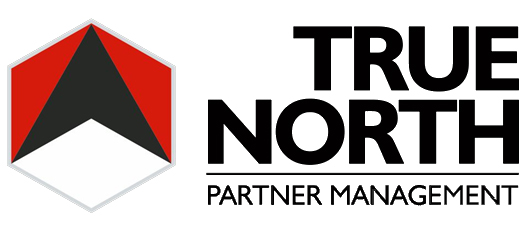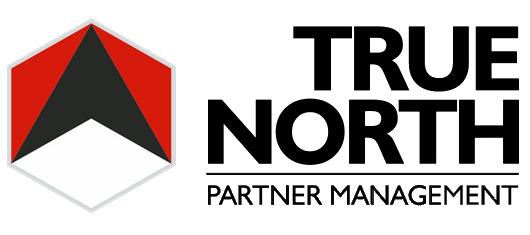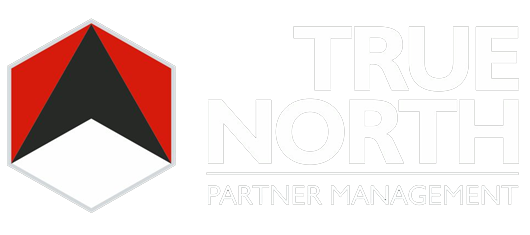The following post originally appeared on Forbes | December 14, 2015
Trust is built with consistency. ~Lincoln Chafee
Though there are numerous reasons why a client might develop a relationship with a global firm, certainly, cross-jurisdictional advice ranks among the top. Importantly, the quality of advice, and the experience – the feel – that clients have with the firm, need to remain consistent across offices and borders. This is a tall order.
Scores of financials, cultures, regulations, and general methods of doing business not only vary dramatically across borders, but they also need to mesh despite their expansive differences. Language barriers, time zones, and information distortion across multiple points can make communication effortful and challenging. And aligning various goals, motivations, and interests grows exponentially more difficult as these factors compound on themselves. For the mere mortals who haven’t had the pleasure of conducting an orchestra of this magnitude, the challenge is something we can’t fathom.
So what does this mean for law firm strategists? Well, high quality advice is a foregone conclusion with the top firms. And as the race continues between the global elites, the firms that are best able to alchemize these challenges will provide the most consistent experience across borders, and as such, shine.
With approximately 2400 attorneys, Hogan Lovells is the fifth largest firm in the U.S. And with 46 offices around the globe, they are no stranger to the challenges of synchronizing across borders. Today I speak with Stephen J. Immelt, CEO of Hogan Lovells, to get his view on the global legal landscape, and the ways that Hogan Lovells is navigating it. See our exchange below:
On The Global Legal Market
Parnell: Let’s talk about the global legal market. Where do you see this heading? In ten years from now, looking out at a twenty thousand foot view, what will it look like?
Immelt: If we’re lucky, the demand will be at the level it is today. That is, it won’t shrink more than it already has in the last five to six years.
That’s probably the biggest uncertainty; just simply, will there be a further softening of demand? I think there are several forces that are affecting this, probably the biggest of which is the move of increasing amounts of work in-house. I expect that will continue; perhaps not at the same rate that has happened over the last five years, but we have a number of clients now that have in-house legal groups of over a thousand. So that is having an impact.
What that means for law firms is that you simply have to adapt. There’s a whole range of clients, from those that have a thousand lawyers in-house, to those clients that have none, so you need to be in a position to work across that spectrum.
Certainly for the large sophisticated clients, what they look for from firms like us is highly sophisticated and specialized advice and scale. That means that when they have a project where they need scale – for instance a large cross-border deal, a big litigation, or unusually complex financing – they need the resources that a firm like ours can provide. But a lot of the day-to-day work is going to be done by their in-house attorneys, and I think that is going to continue to have a dampening effect on law firm demand.
So, in order to grow, firms are going to need to take share. I think we’ve already seen a lot of consolidation in the market, and I believe that there is more consolidation to come. Today, you have a lot of firms who say they’re international, and to prove it they have a map. But over the next ten years, I think clients will become much more discerning in terms of how they view the international capabilities of firms. And we think that over the next ten years, there will be a much smaller group that will really be viewed as core providers when there is a critical cross-border aspect to the matter.
On The Verein Model
Parnell: Hogan Lovells functions under a verein model. I think it’s safe to say that you are positive on the benefits of the verein model, but can you talk to me about that?
Immelt: Let me clarify my position on vereins, as that term has been applied to a variety of different operating approaches, some of which may not even involve a verein.
To me, it’s not about the structure; it’s about how you actually function. I think that there are some firms that use the verein structure, and as far as I can tell, what they actually offer is a marketing collective. So people are basically marketing under a single brand, while maintaining a significant degree of independence between the various constituent parts.
Whether they use a verein structure or not, most global law firms operate with multiple partnerships — that’s just a standard feature of the way you need to operate for tax and other regulatory reasons, and we are no exception. But to me, the crucial question is, how do you actually work together?
In looking at other firms that deploy a verein model, unless you’re inside a firm, who knows how people operate? It’s always a projection. I note that from time to time you do see situations where some firms get into a posture where they’re telling a client that they don’t really represent them because that’s another partnership. We don’t do that. For us, we have a significant degree of coordination across our global practices, and we use a single set of principles for conflicts across the board: the U.S. Conflicts Rules. Therefore, we’re never going to have a situation where we would claim that because the client was somehow the client of a different partnership, that that would allow us to basically ignore that client. We don’t do that. In terms of policy advancement and compensation, we make decisions on a global basis with a set of principles that we apply, and we have a management team that really works on a coordinated basis. To me, the structure is not as important as just simply, how you operate. There are as many variations in how the so-called “verein” firms operate, as there are with other law firms in the world.
On Cross-Border Incentives Within The Verein Model
Parnell: let’s talk about cross-border incentives for a moment. They seem to be one of, if not the major criticism of the verein model. How do you handle that? Do you have cross-border incentives that facilitate the flow of work within the verein?
Immelt: The way I would put it is that we make decisions about compensation, among other things, in a single-process, based on a single set of principles. That allows us to look at what people are actually doing. That doesn’t mean that there is a single profit pool, as there’s not. But when we are making decisions about allocation, we operate on a single set of principles that we apply at the same time, to everyone. So in that sense, I think from the partners’ point of view, they very much have a sense that their efforts to develop work across our multiple practices and office are recognized and considered.
We don’t have a formulaic compensation system. We very much look at what contributions people make, and the development of work across the practices and regions is one of the key things we look at. The ability to take a number of things into consideration in terms of setting compensation is very helpful.
On Ensuring Consistency Across Borders
Parnell: This leads into another challenge, which is ensuring the consistency of quality and “feel” across borders. Could you talk to me about some of the things you’re doing with that?
Immelt: Absolutely. I think that is the critical thing. The idea that you have these offices, from the client’s point of view, only helps them if those offices actually deliver a consistent service-level and experience. We have practice leaders who are “global” practice leaders, and part of their responsibility is to be certain that all of our offices operate at the highest quality level. If you look at Chambers, or any outside rating service, it shows we have a very significant representation in those services; our partners have strong market standing. So the quality is high, but we also strive for consistency to be sure that we’re working together effectively, and that we’re building a culture across the offices that is tangible and apparent to clients.
We see it very much as the responsibility of the practice leaders to try to assure and build that type of consistency, because without that, if the way it feels to a client is actually that they’re having to coordinate themselves, or that they’re getting a very uneven experience, then why not just do it themselves and hire fifteen different law firms instead?
On Emerging Markets
Parnell: Aside from Africa and India, are there other emerging markets that you think will be important over the next ten years or so?
Immelt: Well, I think the Americas – and by that I include Mexico, Central America, and South America – have good potential. Brazil is going through a pretty challenging period right now, as is Argentina, but the west coast of South America, such as Chile, Peru, Ecuador, and Colombia, is not in the same situation. I think they’re still in a development mode, although not perhaps at the same growth rate that you saw before. Mexico, I believe, is still poised for a period of growth; there certainly are still issues there, but we see it as an increasingly important market. The transaction we did with the BSTL law firm there means that we now have a significant office in Mexico City, and an office in Monterrey. We’re seeing huge opportunities there, and lots of work going back and forth, so I don’t discount the Americas.
Our strategy has not been to plant a lot of flags, but to try to identify those jurisdictions where our clients really need us to be. So we have a very strong network of firms in South America that we work with, and I think that works to the benefit of clients. But we see that as a growth area for the firm.
Africa, the same thing: I can’t be certain, but I would be surprised if over the next five years we would be opening multiple offices in Africa; that is just not our approach. Obviously we have a significant practice in Johannesburg, and we have strong African practices in London and Paris – each of which deals with different regions of Africa – and a fair amount of work flowing in from Washington D.C. and New York into Africa. So the strategy there would not be an office-opening one, but more about developing the capability and building strong relationships with indigenous firms, and networking effectively with them.
I feel that the growth potential in Africa is still to be realized. Everybody recognizes the huge development needs that Africa has, but it’s not yet clear whether the financing is going to be delivered, nor exactly which projects will get off the ground over the next five years.
India is a market where we’re currently not able to act, and if there were an opportunity to enter that market, we probably would want to try to do that. But that’s either going to happen next month or twenty years from now – nobody knows. There was a lot of speculation when Prime Minister Modi took office. And it’s certainly worked its way up the agenda, but we haven’t actually seen any change. I would expect that when that change comes, it will probably look more like Brazil, which has a number of restrictions on how you can operate, versus Mexico, which does not. We have an India working group that pays close attention to developments there. But then as I said, it could happen next month, or it could happen in 2035.
On Their Plans In China
Parnell: Regarding China, have you considered a merger there? What are your plans?
Immelt: I think that we have a good footprint in China already, with strong practices in Beijing, Shanghai, and Hong Kong. In terms of the number of lawyers in those three offices, we are the second largest international law firm in the country, so we have a fairly good footprint there.
We are actively exploring the options that have been created in the Shanghai free-trade zone to see whether there is an opportunity to enter into a joint venture with a Chinese firm. If we did do something, it would be modest, and intended primarily to help us and the P.R.C. lawyers understand how we could work together effectively for the benefit of clients. I don’t see anything like a Dacheng [Dentons] or a King & Wood [Mallesons] type of transaction in our own immediate future. That is probably because we really are much more than just simply a marketing arrangement. We really operate in a highly coordinated fashion, and I think the culture and language barriers to doing something large scale are really pretty significant, and not something that I would put as a high priority for us.
I think our model is what delivers the best value to clients, for some of the reasons we’ve talked about. The value to clients is bringing collaborative teams that work across specialty areas and jurisdictions, and are really focused on giving the client what they need. To me, that is the key here: It isn’t a map, and we very much work toward a single culture, a single set of leadership behaviors, and a single set of expectations. We communicate consistently across all the offices in a one-step approach. So I think that ‘One Hogan Lovells’ is really a critical mindset for our people.
On New Technology That They’ve Been Adopting
Parnell: Technology – have you been adopting anything new? Any innovative technology to keep up as the market continues to evolve?
Immelt: We obviously have made big investments in the sorts of the technologies that allow you to work agilely and communicate effectively wherever you are. That does require a pretty big investment, and one of the technology tools we rolled out last year is the adoption of Lync software across the firm. Lync allows you to run a video conference call from your desktop, and basically dial up anybody in your network. I use it frequently, making around four or five Lync calls a day, and the ability to do that very simply, is incredibly effective.
As we go forward, we’re very focused on trying to collect our data in a way that allows us to do more analytical work. I would say that’s a work in progress, because like a lot of law firms, our data that we’ve collected over the years – which runs the gamut from time records, to bills, to anything else – wasn’t necessarily done with a view toward it being a source of data that we would want to deeply analyze. But today that analysis really is important for pricing and other purposes, so we’re very focused on trying to develop a finance system that allows us to be sophisticated about that.
On Artificial Intelligence (A.I.)
Parnell: How about A.I.-types of technology?
Immelt: That is a big frontier that everybody is watching, and what that can actually deliver. In certain areas like documents and due diligence, you’ve certainly seen a move in the direction of more digitalization and predictive coding. I think that trend will continue, and I think it means that we will either develop more of those good resources ourselves, or just simply collaborate with a vendor who can do that; it would really depend on client preference in that respect. But I think the kind of deeper level of artificial intelligence is still a few years off, and we’ve spent a lot of time talking to IBM and other vendors, in terms of what they’re trying to do.
I’m not an alarmist about artificial intelligence, because I think it will actually just make us more effective. It will get us to an assessment of the legal situation faster, and may get us to a suite of documents faster. But what firms like Hogan Lovells do, increasingly, is work on what I like to term “asymmetric,” or “non-linear,” projects. So the real question is how you can help the client really work through a complex business situation or regulatory situation. And there, I don’t think anybody is likely to write an algorithm that is going to make us irrelevant just yet.
I don’t think we’re going to have computers negotiating M&A deals in five or ten years, nor do I think that people will get their sanctions advice from a Google search. But I do think that there will be a continuing evolution in terms of the tools of artificial intelligence that will change the way that lawyers work. They may even change the composition of law firms, but it’s just too soon to tell. And I think there’s still a gap between what people are predicting artificial intelligence may be able to do, and what it can actually do, today, or be able to do over the next three years.
On Developing The Business Side Of A Legal Skill Set
Parnell: I think you would agree that at this point, it’s no longer sufficient to just to be a very good lawyer. There are a lot of business aspects, and softer, social aspects, that are necessary for someone to be great counsel. Can you talk to me about that?
Immelt: Yes, I think you’re right. I think you need to be a very good lawyer, but the days of the generalist are shrinking. I think the market has got to the point where people want specialization. And this is the rare person in today’s market, and they tend to be lawyers who are my age or David [Hudd’s] age, that still have that reputation for just being the great counselor. But I would say when you move into the younger generations, they need to be a specialist. The clients will come along and say that it’s not enough that you’ve litigated a products case for a pharmaceutical company; they want to know that you’ve litigated this class of drugs, and so forth. So you do have more and more specialization, and we see that across all of our practices. In a way it’s what allows a firm like Hogan Lovells to continue to be relevant to clients that, nevertheless, have very large in-house legal departments, because we do have a very high degree of specialization across the firm.
On Where To Focus Your Skillset Development
Parnell: In that vein, talk to me about the about skill-set development for your junior partner or your young attorney that is just starting out. If you had to start over, where would you focus your efforts to develop your skillset?
Immelt: I’d say one of the big changes that I’ve seen is that when I was developing, it was the sink-or-swim model: You got tossed into the ocean, and if you managed to keep your head above water, then eventually people would say that that’s a person who knows how to swim. That is not the world today. And I think that not only is it much better to actually train people – certainly for the people entering the profession today, with whatever label you want to put on them, such as millennials, etc. – but my sense is that there’s a very different expectation about what that experience is going to be like. There’s the expectation that they will be trained, and we have a very clearly delineated training program that takes people from their beginnings as a junior lawyer, all the way up to the time when they would be eligible to become partners.
We have also developed major training programs for new partners. We have a program that happens within the first three months after people become partners, and then we have a further follow up around three years on, that checks in terms of how they’re doing. There is also a lot of focused mentoring. The focus is not primarily on hard legal skills, it’s dealing instead with the development of a profile: How to deal with clients, how to deal with the firm, how to really think about the development of your career. I think that’s very necessary, and we put a lot of investment into it. I actually think it’s something we may need to do even more intensively, to make sure that people really have got the skills they need to thrive in what is undeniably a very competitive legal market.
We have also worked to develop other programs that are either ad hoc programs in that they address a particular issue, or more holistic, such as leadership. We have a pretty well developed leadership program and those skills become increasingly important as we grow. Ultimately, I think it goes back to asking yourself, as a firm, what skills your people will need to meet the needs of clients, not just today, but over time. You’re not running a small partnership anymore; you’re running global professional services firm.
(The preceding interview was edited for clarity and length.)
Email: [email protected] Twitter: @davidjparnell
Books: The Failing Law Firm: Symptoms And Remedies; In-House: A Lawyer’s Guide To Getting A Corporate Legal Position



